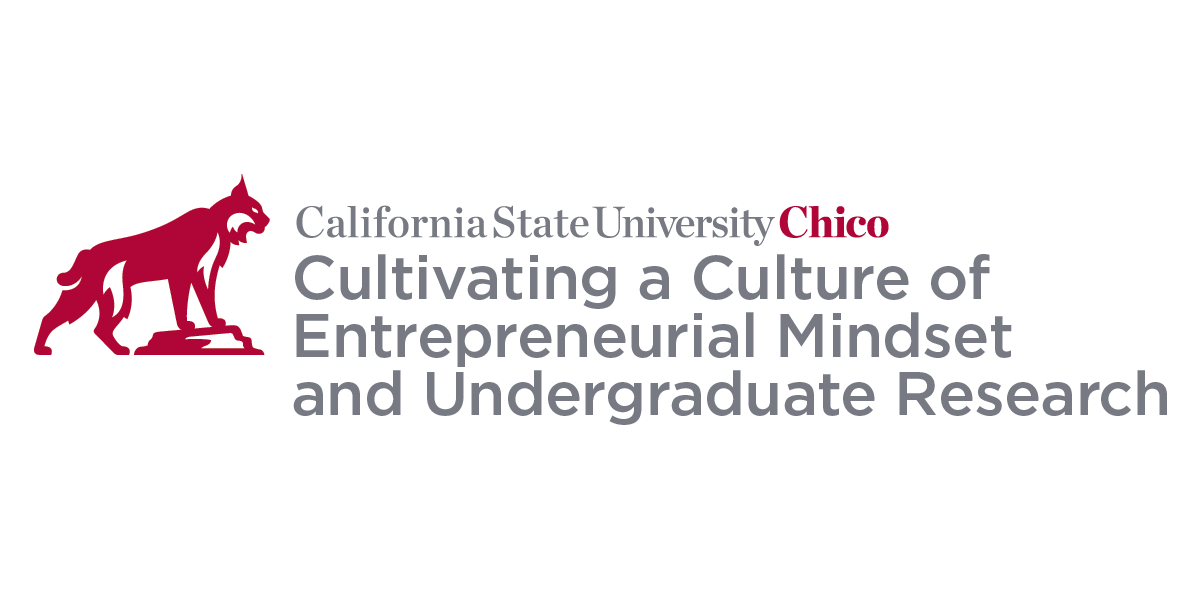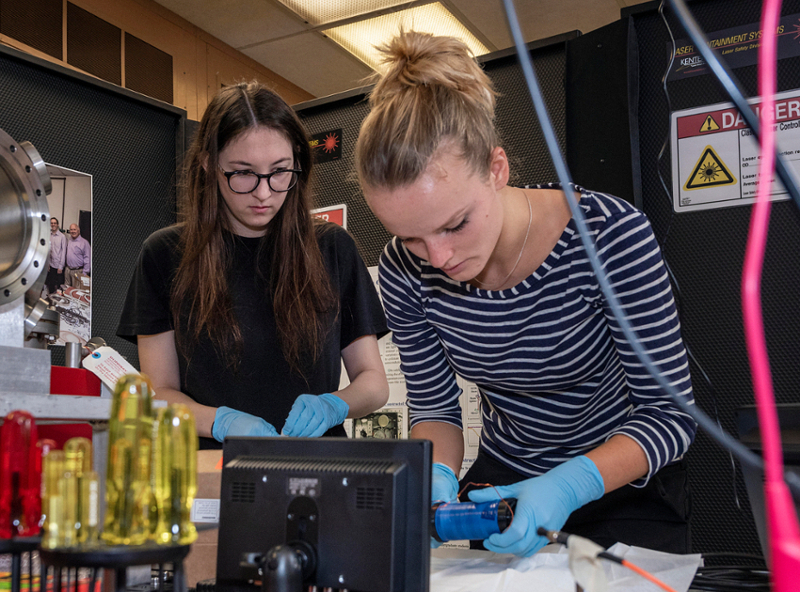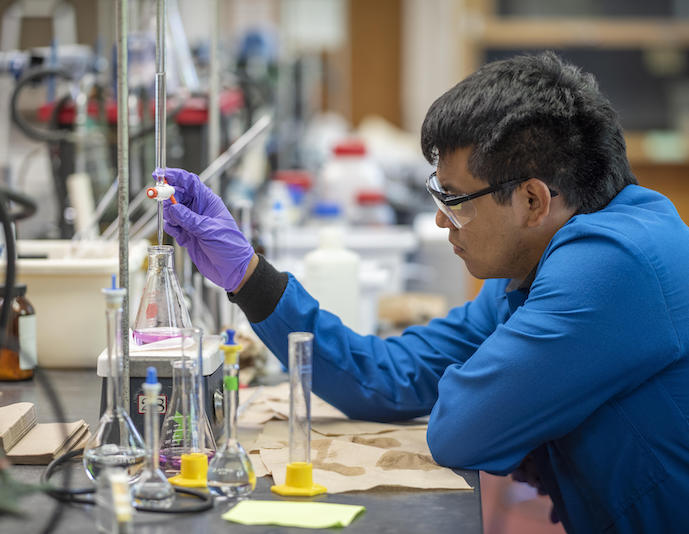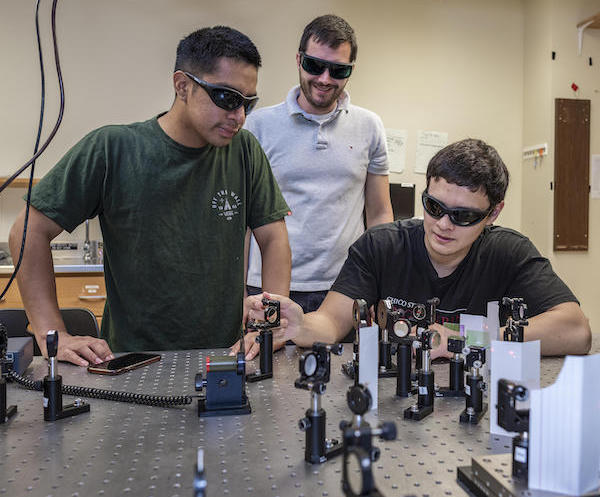What is an Entrepreneurial Mindset?
An entrepreneurial mindset is a set of beliefs, knowledge, and thought processes that equips people to recognize opportunities, take initiative, and succeed in diverse settings. CURE-E introduces students to entrepreneurial concepts by bringing EM experiences into the classroom, providing students with tools to assess and reflect upon their EM.
Entrepreneurs are not born. Anyone can develop an entrepreneurial mindset. You just need to learn to think like an entrepreneur. The Network for Teaching Entrepreneurship developed eight skills and characteristics that embody the Entrepreneurial Mindset:
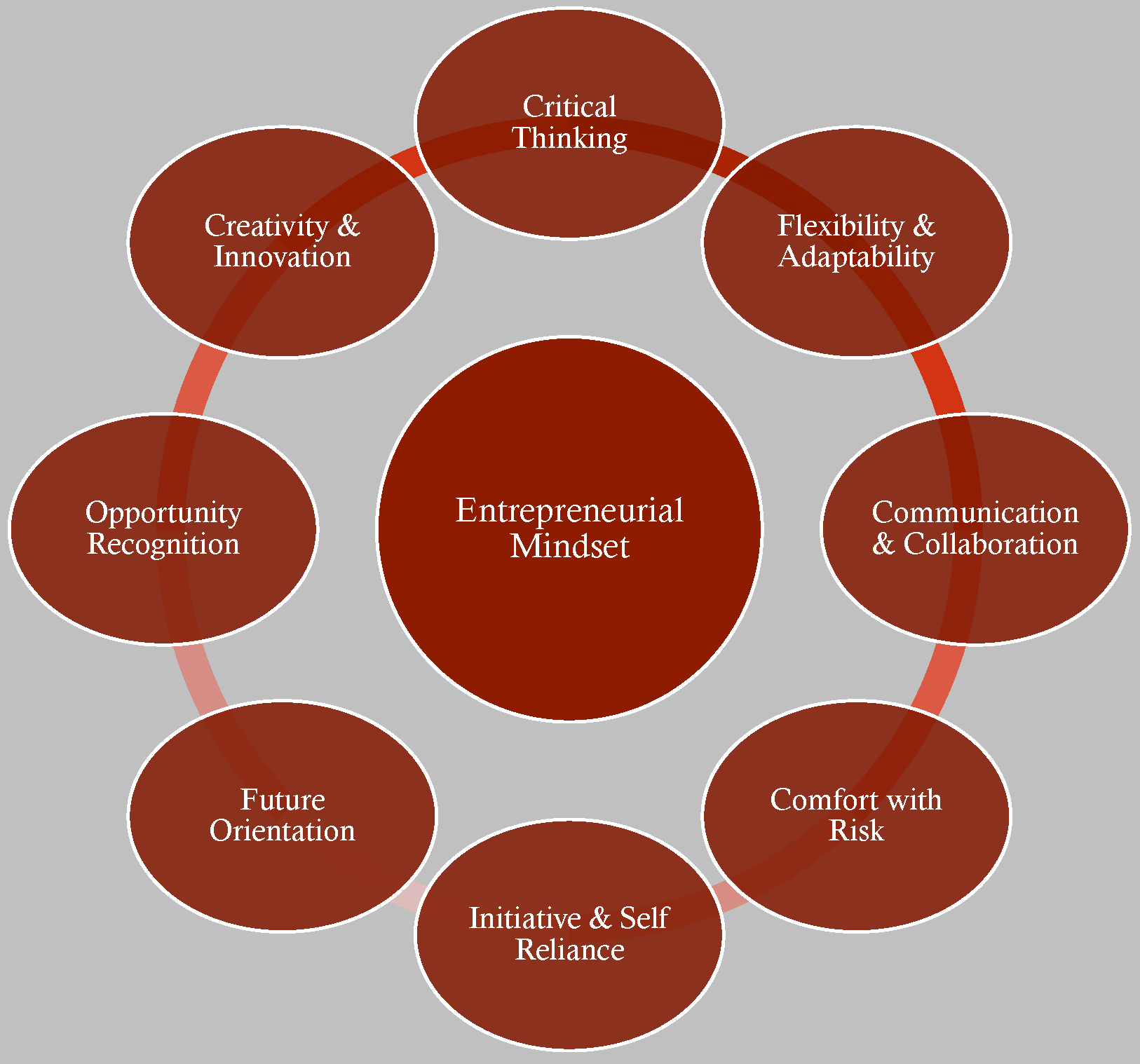
Why an Entrepreneurial Mindset is important for students
Employability skills are rapidly changing within industries and employment opportunities. Future jobs will require tremendous adaptation. Narrowly focusing on one’s skills can lead to a dead-end or jobs that no longer exist.
"65% of children entering primary school today will ultimately end up working in completely new job types that don’t yet exist." January 2016, World Economic Forum
An Entrepreneurial Mindset (EM) enhances a student's education by teaching them perseverance, tenacity, creativity, problem-solving, and collaboration so they can identify problems and find solutions. Research shows that an entrepreneurial mindset is highly sought after by employers and improves student educational completion and achievement.
“Yesterday’s ‘soft’ skills are the hard skills of the future.” Supporting the next generation, The entrepreneurial mindset and the future of work, A research brief presented by EY and Network for Teaching Entrepreneurship, 2018
Developing an Entrepreneurial Mindset is about learning the skills, reflecting on the behaviors, and challenging the norms to empower oneself to persevere in the face of challenges.
"…adaptation will require higher educational attainment, or spending more time on activities that require social and emotional skills, creativity, high-level cognitive capabilities and other skills relatively hard to automate." Jobs Lost, Jobs Gained: Workforce Transitions in a Time of Automation, McKinsey Global Institute, Dec. 2017
Students with an EM focus their attention on creating value for others. This other-centered approach naturally adapts to a powerful approach to design called Design Thinking where the entrepreneur develops skills in deep listening, observation, and empathy to better design solutions to complex problems. Human-centered design focuses on deeply understanding the users' experiences and pain-points through building empathy, creative problem solving, testing, and iterating. CURE-E leverages much of the work from the Stanford School of Design and IDEO.org. Learn more about human-centered design and download the free Field Guide to Human-Centered Design.(opens in new window)
Entrepreneurial Mindset: The belief that ones positive attitude and robust and intentioned behaviors create amazing solutions to both the smallest and largest problems in our world.
Human-Centered Design or Design Thinking: People are at the center of all potential opportunities and therefore are the ones with the best solutions.
Combining EM and Design Thinking with undergraduate research opportunities in the classroom gives students a framework to build confidence and understanding to persevere through their educational challenges and connect their learning and understanding to the world around them. An entrepreneurial mindset teaches students to learn from failure:
The Network for Teaching Entrepreneurship has excellent resources and research on the benefits of an Entrepreneurial Mindset. Learn more about the Entrepreneurial Mindset.(opens in new window)


